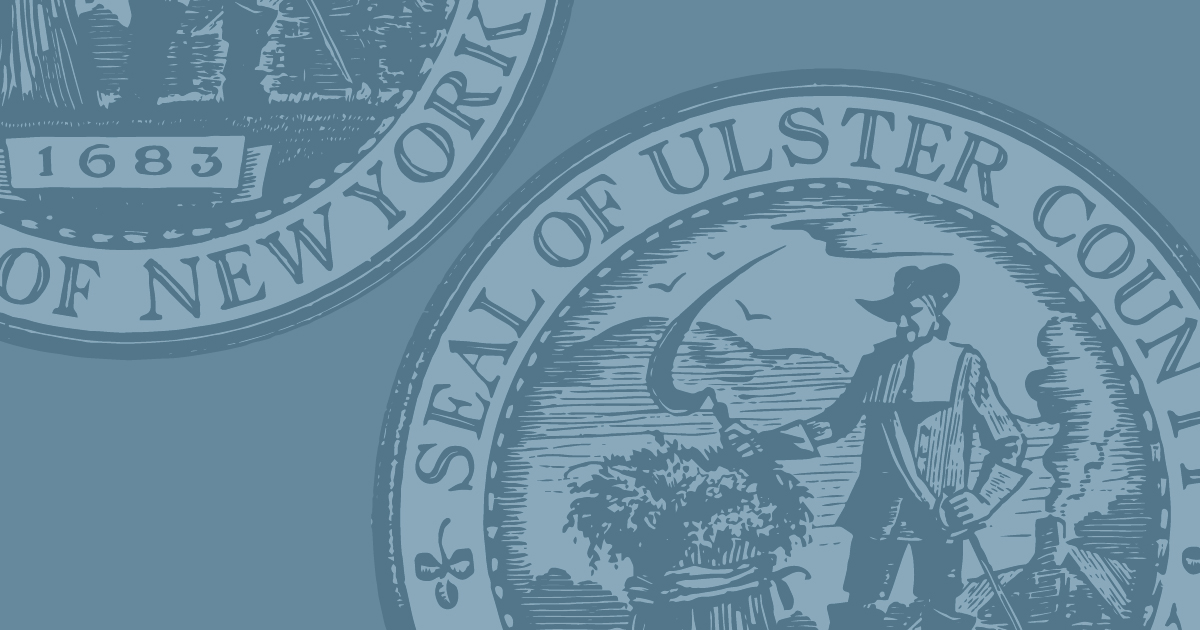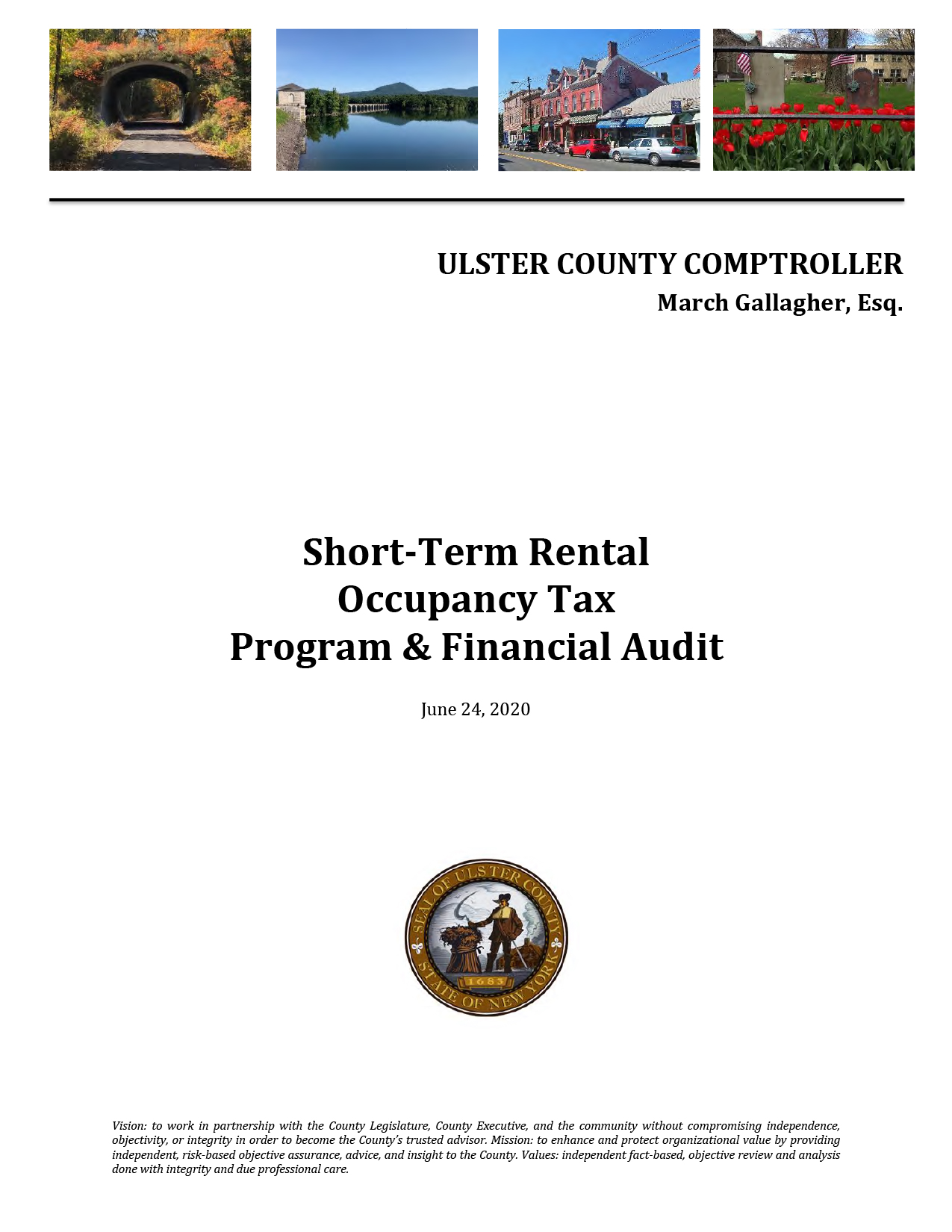Short-term Rental Occupancy Tax Collection Inefficiencies Lead to Lost Revenues
Kingston, NY (June 24, 2020) – Ulster County Comptroller March Gallagher released a two-part report on the program and finance aspects of occupancy tax revenues for short-term rental transactions in Ulster County. Occupancy tax collections have increased from $1.2 million in 2014 to over $2 million in 2019. Airbnb, just one online short-term rental platform, reported $31.9 million in 2019 platform-generated revenues for Ulster County which should have resulted in $638,000 of occupancy tax, however, current methods of occupancy tax record-keeping do not allow monitoring of short-term rental revenue separately.
The Ulster County Comptroller’s Office began an audit of 2019 short-term rental occupancy tax revenues in February 2020, however, responses from short-term rental operatorsweredelayedas a result of COVID-19. The Comptroller presents this audit now to inform potential occupancy tax law and revenue collection changes.
The audit found a disjointed inefficient short-term rental occupancy tax registration process resulting in forgone revenue and unnecessary costs for revenue collection. The audit identified registration, payment, online advertising and correspondence data kept separately across multiple software programs and inpaperfiles.Type of establishment data (hotel, motel, bed & breakfast, other) is not linked to payment data so it is not possible to monitor the revenues from short-term rental separately.
The audit identified property hosts that:
- fail to register yet rent even after repeated communications from Ulster County
- rent but remain unidentified by the County
- affirm that they do not rent but are renting
- fail to file quarterly returns on time or at all
- report inaccurate total income amounts on quarterly reports
Seventy of 140 (50%) of short-term rental quarterly filings tested had immaterial discrepancies between reported income on tax filings and income supported by backup documentation provided for the audit.
“Ulster County must collect all tax due from short-term rentals, especially given the COVID-related budget shortfalls we face,” said Ulster County Comptroller March Gallagher. “Short-term rental hosts and visitors must pay their fair share otherwise the costs of tourism marketing, and addressing the public health and housing issues associated with tourism, fall on other Ulster County taxpayers.”
The Comptroller’s Office recommends tracking occupancy tax revenues from short-rental properties separately from traditional operators for more accuracy and analysis including potential future legislative changes which could treat short-term rentals differently from traditional lodging. The audit also recommends that Ulster County create an online centralized system for paperless registration and payments. The audit recommends more consistent application of penalties and interest moving forward. Finally, the audit recommends that Ulster County enter voluntary collection agreements (VCAs) with all available platforms such as Airbnb while retaining third-party short-term rental research contracts and authority to audit individual occupancy tax taxpayers.







